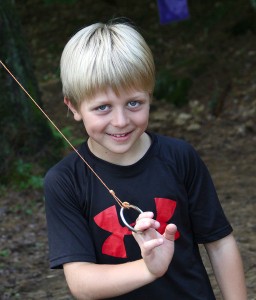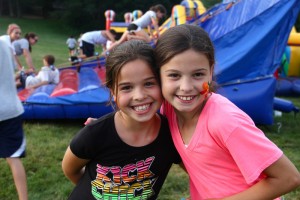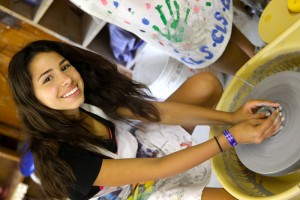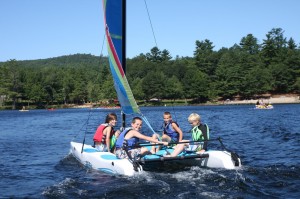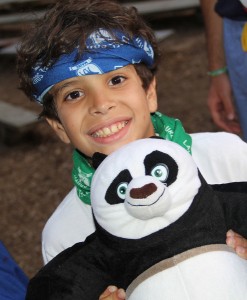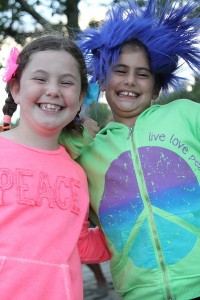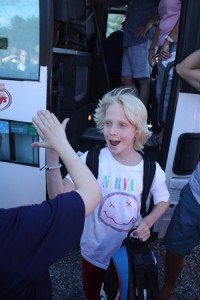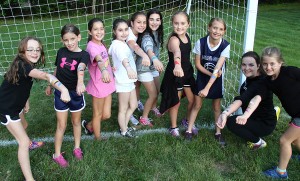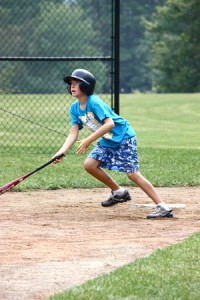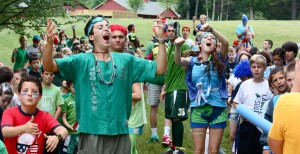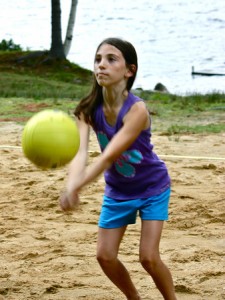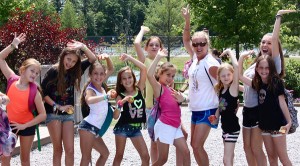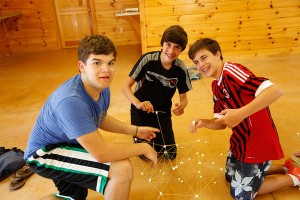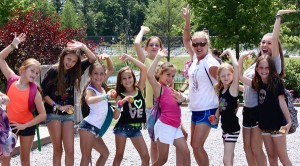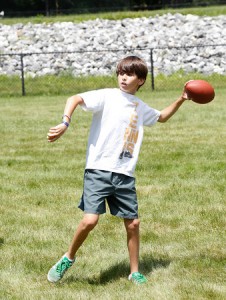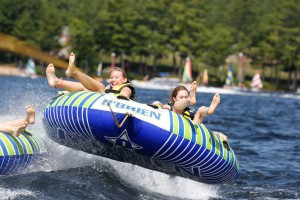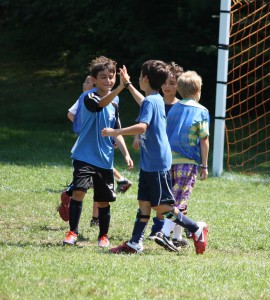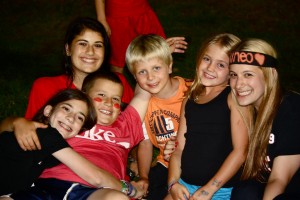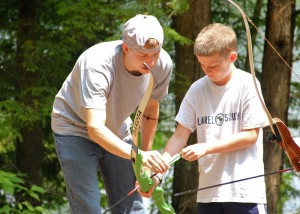 There aren’t many places children can go to be surrounded by positive role models that provide them the opportunity to develop relationships on multiple levels. For most kids, adult mentors are limited to parents, coaches and teachers. There’s one place, however, where children are surrounded by mentors on multiple levels 24/7: summer camp. Most summer camps have very high staff to camper ratios, which means there is never a shortage of grownups from whom campers can seek guidance and leadership. Of course, everyone knows that role models are important in the lives of children. But we simply forget to take the time to consider that having different types of leadership examples is equally crucial, until we’re reminded of this by the campers themselves.
There aren’t many places children can go to be surrounded by positive role models that provide them the opportunity to develop relationships on multiple levels. For most kids, adult mentors are limited to parents, coaches and teachers. There’s one place, however, where children are surrounded by mentors on multiple levels 24/7: summer camp. Most summer camps have very high staff to camper ratios, which means there is never a shortage of grownups from whom campers can seek guidance and leadership. Of course, everyone knows that role models are important in the lives of children. But we simply forget to take the time to consider that having different types of leadership examples is equally crucial, until we’re reminded of this by the campers themselves.
A senior camper at one of America’s Finest Summer Camps recently observed there are so many leaders at camp that you never feel like you have no one to go to when the need arises. This is very true. There are coaches to help children improve their skills and reach athletic goals. There are counselors to provide guidance through daily activities. There are Head Counselors and Campus Leaders to help out with the bigger, more complicated aspects of camp. And there are Directors who make it their business to make sure everyone has fun and stays safe. There is also the myriad of other staff who work in camp offices, kitchens and health centers. Regardless of which role any of these people fulfill, they’re all working at summer camp for one reason: They have opted to dedicate their summers to making a positive impact on the lives of children, and the campers’ best interests are their first priority. There aren’t many institutions that can make a similar claim.
As leaders and mentors, camp staff bring a passion to their jobs that anyone who makes a decision to dedicate themselves 24/7 to a job must have in 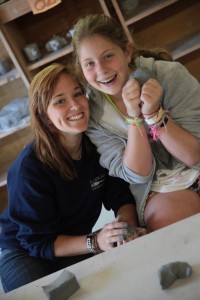 order to be successful. They voluntarily give up sleep, time with family and free-time in order to be a part of summer camp, and their dedication shows through their interaction with campers. The relationship is symbiotic. Campers understand that staff find as much value in the summer camp experience as they do, which develops into a mutual confidence and trust.
order to be successful. They voluntarily give up sleep, time with family and free-time in order to be a part of summer camp, and their dedication shows through their interaction with campers. The relationship is symbiotic. Campers understand that staff find as much value in the summer camp experience as they do, which develops into a mutual confidence and trust.
Social learning is the psychological concept that places value on the necessity of good role models in the lives of children, which is perhaps why camp is an ideal place for campers to get the most out of being surrounded by many prospective mentors. Summer camp is somewhat of a microcosm of an ideal society. It’s a self-contained arena in which people live alongside one another in an environment that is most harmonious when everyone supports the successes of those around them. The absence of everyday competitiveness gives campers the opportunity to take full advantage of the encouragement that comes from everyone around them, including leaders.


